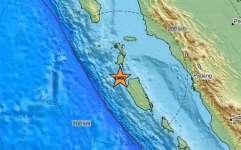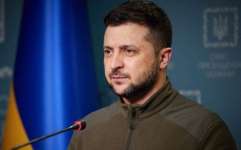Covid-19 variant: Is Bangladesh repeating the same mistake as in March?
Preventive measures will be the key to curb the spread of the new variant, according to experts
With the second wave of Covd-19 being much discussed in Bangladesh amidst the chilling winter, the emergence of a new variant of Sars-CoV-2 have increased the already growing concern.
As the country severely lacks genomic surveillance while clinical management still remains a question, experts said the first step to stop the spread of this new variant will be stopping it from entering the country.
They also seemed to be in a dilemma on the fact that whether the variant will defy the antibodies produced by the vaccines, developed till now.
“We observed that when the virus first hit the country, the authorities delayed in managing the movement of the flight passengers. In the current situation, Bangladesh has no option to delay but to take immediate measures,” said former director general of Directorate General of Health Services (DGHS) Prof Shah Mohammad Monir, who is also a member of DGHS’s eight-member Public Health Advisors Group.
As of late Wednesday night, the country is yet to take any decision on flight ban with the United Kingdom (UK), according to the government offices.
However, the airport authorities have already started taking measures after being ordered to on Tuesday night.
Dr Shahriar Sazzad, assistant director of DGHS at Hazrat Shahjalal International Airport (HSIA), said: “Not only passengers from UK, but also those coming from other European countries or transiting through UK will be screened for the virus.”
The DGHS unit at the airport informed that they are focusing on European passengers mostly on the passengers who are coming from UK or have transit there.
Officer deployed at the hotline of the airport said no direct flight of Biman from London arrived on Wednesday but they are screening all passenger coming from Europe.
Health Minister Zahid Maleque in an event on Wednesday morning said if passengers arriving from the UK, who do not have a Covid-19 negative certificate or are showing symptoms despite having a certificate, will be institutionally quarantined for seven days when it is usually three days for passengers from other countries.
He, however, said that no decision was made on flight ban till then.
The new variants
According to UK media, the striking feature of the Sars-CoV-2 lineage 1.1.7, which they discovered at the Covid-19 Genomics UK Consortium, has undergone a large number of mutations compared with other lineages surveillances in UK. It has undergone a total of 23 mutations, which sets it apart.
Meanwhile, another variant, similar to UK one, has been identified in South Africa as well. According to the expert, it would be less of a concern for countries like Bangladesh as they do not have any direct flights with them. But those who have recent history of visiting the country should be brought under screening.
In UK, people who visited South Africa recently have been identified with this Covid-19 variant as well.
According to the Guardian, what concerning scientists about lineage 1.1.7 is that, alongside six mutations that did not change any protein, there are 17 (14 mutations and three deletions) others that changed the thing.
A preliminary genomic analysis of lineage 1.1.7 shows one of the mutations (termed 501Y) has been shown to increase the strength with which the protein binds to a receptor on the surface of human cells. A second change (69-70del) has been identified in viruses that evolved to evade the natural immune response in some immune-compromised patients.
The data that it looked at included a genomic analysis showing that this particular lineage was growing around 70% faster.
In one recent survey of mutations that UK consortium did, based on 126,219 genomes from positive samples, it was possible to identify 1,777 different amino-acid-changing mutations in the spike protein gene, that experts said to be more concerning.
Experts takes
Prof Dr Nazrul Islam, noted virologist and a member of National Technical Advisory Committee on Covid -19 said: “The variant is very much transmissible and in our country where we could not be able to follow up the mutations, done by large scale genomic analysis, preventive measures would be the key.”
The mutation of the virus has changed its spikes which is responsible for attaching with human body and it is also the same area where the antibodies of vaccines would work. So, all the vaccination activities could go in vain, he added.
“The antibodies which the vaccines will produce might not work on this particular variant as well,” he feared.
However, biomedical scientist Prof Liaquat Ali, who is also a member of the government-formed Public Health Advisors Group, hoped that vaccine would be effective on the new variant.
While Prof Nazrul opined for banning the flight, the other two public expert focused on preventive measures and their efficient implementation.
“Nothing can be assumed about the new variant and what these mutations mean. We need more scientific evidence in order to understand how this particular version of the virus behaves compared with others,” said Professor Shah Mohammad Monir.
Proper screening, strict quarantine and isolation, and ensuring that everyone wears a mask is the key to fight the new variant, he added.
“Besides, authorities have to make their clinical facilities ready as we have already witness that more number of people are getting admitted to the hospitals. Especially, the ICUs and oxygen supply facilities,” said Prof Nazrul.














